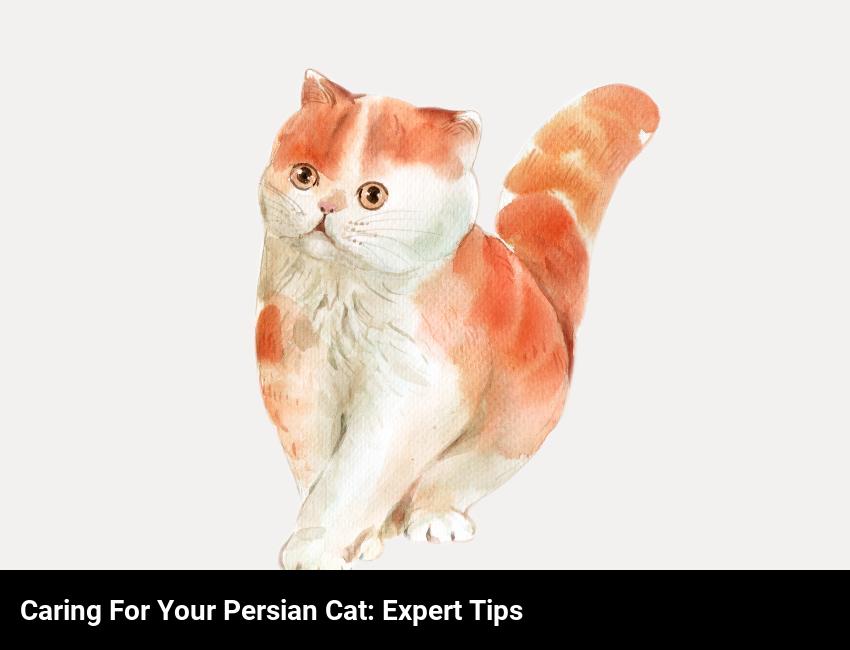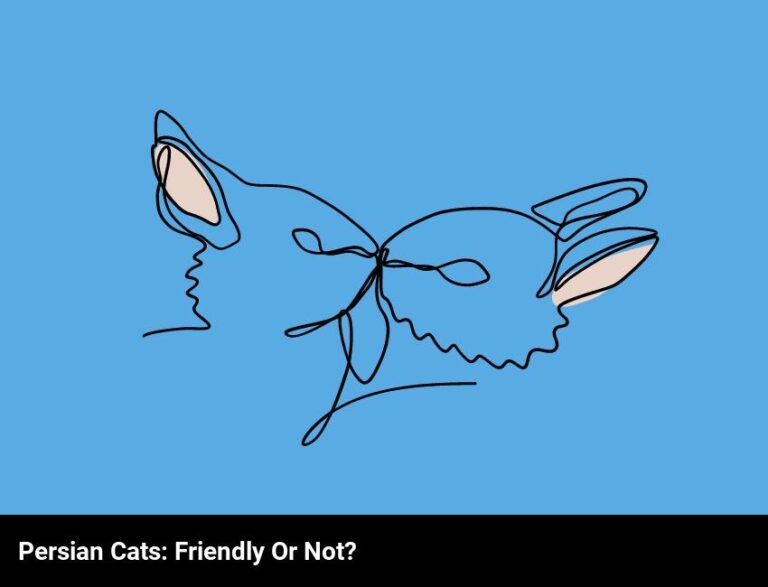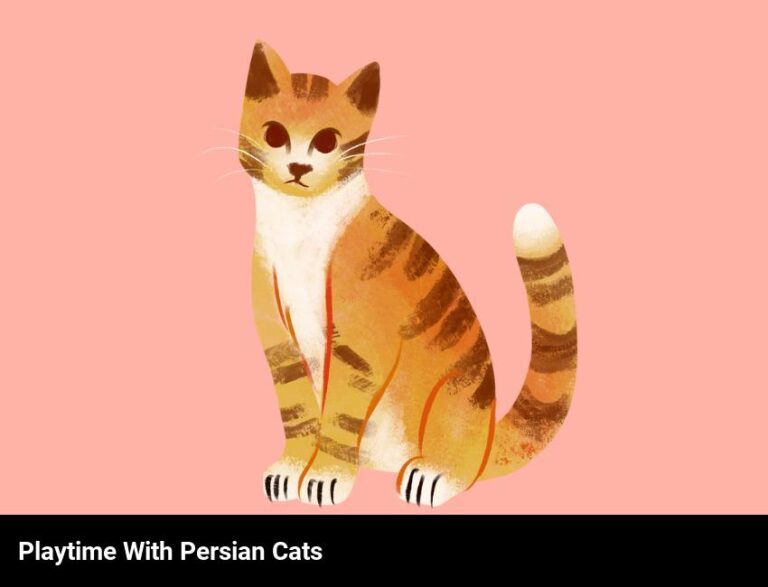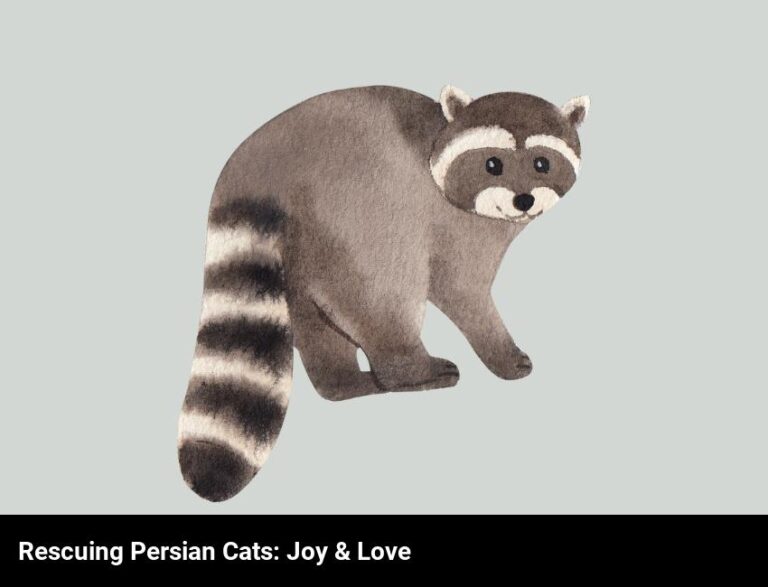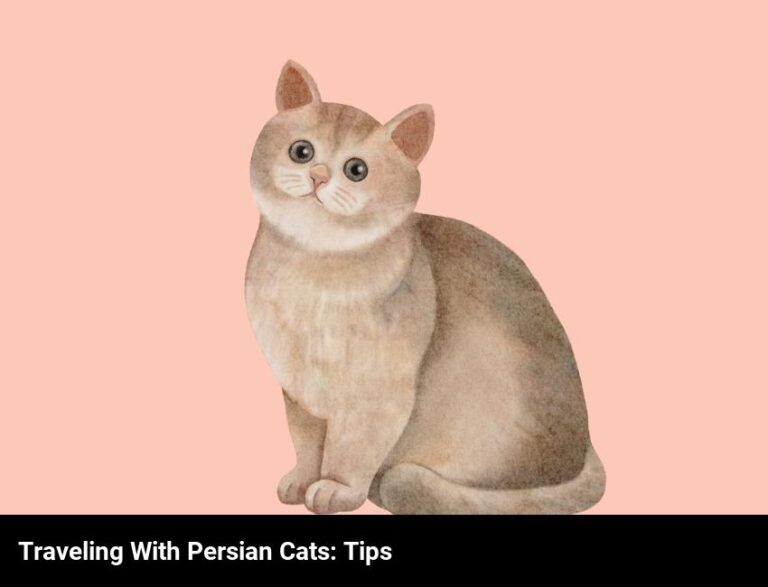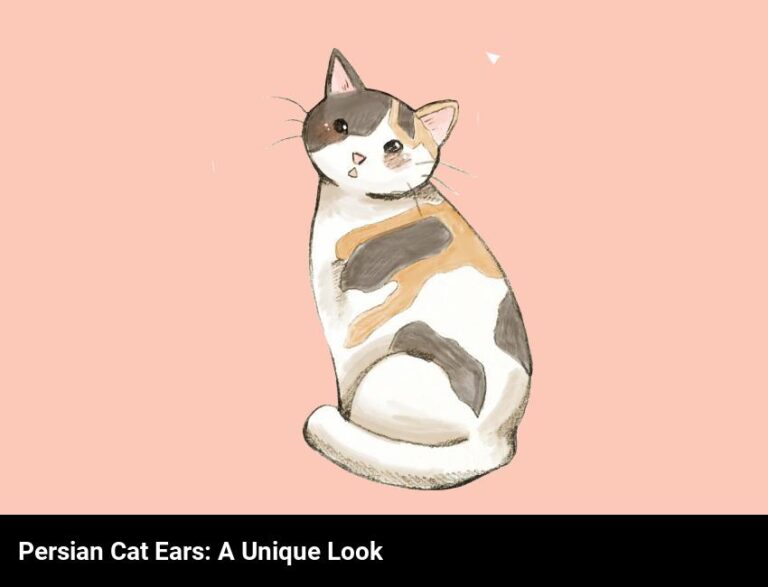Expert Tips For Caring For Your Persian Cat
For Persian cats, be sure to brush their fur daily to reduce shedding. Trim their nails regularly and use a gentle shampoo when bathing. Make sure their diet is high in protein and low in fat and provide plenty of fresh water. Also, provide a scratching post and toys for mental stimulation.
As a passionate cat-lover, I have always been drawn to Persian cats. With their regal and majestic look, these cats are a joy to behold. From their luxurious fur coats to their large eyes and cuddly personalities, Persian cats are irresistible.
I believe that owning a Persian cat can be a wonderful experience, but it does require a lot of knowledge and commitment. When it comes to caring for a Persian cat, there are some essential tips to keep in mind. In this blog, I will be sharing my personal experience on caring for a Persian cat and discuss topics such as what to consider when choosing one, best practices for grooming, types of food, litter box changing frequency, health issues, adjusting to a new environment, and more.
Owning a Persian cat is a rewarding experience, and I’m excited to share some of my tips and tricks to make the journey even more enjoyable.
What should you consider when choosing a persian cat?
When choosing a Persian cat, there are a few things you should consider. First, pay attention to the cat’s level of energy. Persian cats are known for their laid-back, mellow personalities, but some cats are more active than others. If you’re looking for a low-maintenance pet, opt for a cat that’s more on the relaxed side.
Another important factor to consider is coat color and pattern. While all Persian cats have a thick, luxurious coat, there are a variety of colors and patterns to choose from. If you’d like a unique-looking pet, you can find a Persian with a rare coat pattern.
Finally, it’s important to make sure the cat is healthy and has been well-cared for. Take the time to meet the breeder or shelter and ask any questions you may have about the cat’s health and temperament. Look for signs of good health, such as bright eyes, a glossy coat, and a good appetite.
When you take all of these factors into account, you’ll be able to choose a Persian cat that’s the perfect fit for your home. With the right care and attention, your cat will be a loving and loyal companion for years to come.
What are the best practices for grooming a persian cat?
Grooming your Persian cat is essential for its health and wellbeing. Here are some best practices to keep in mind:
Brush regularly: The long, silky coat of a Persian cat needs to be brushed at least once a week. A slicker brush works best to get out any knots and mats.
Bathe occasionally: While you don’t need to bathe your Persian cat all the time, it’s good to give it a bath every few weeks. Make sure to use a shampoo specifically designed for cats.
Trim nails: Trim the nails of your Persian cat every few weeks to prevent any scratching or other damage. Your cat can also benefit from a little paw-pad trim.
Clean eyes and ears: Clean your Persian cat’s eyes and ears every few days to prevent any infections and other issues. Use a damp cloth or cotton swab and warm water.
Brush teeth: As with humans, dental health is important for cats too. Brush your Persian cat’s teeth regularly, once a week or so, to prevent any dental issues.
Overall, following these best practices can help keep your Persian cat happy and healthy.
What types of food are best for a persian cat?
When it comes to feeding your Persian cat, the most important thing to remember is that they need a high-quality diet. That means sticking to a name brand food that’s specifically designed for cats, and avoiding generic kibble or table scraps.
For the protein portion of their diet, it is best to stick to a meat-based food. Look for options that contain real chicken, turkey, fish, or beef as the main ingredient. To ensure your cat is getting the right balance of nutrients, try to find a food that includes vitamins, minerals, and other essential nutrients.
The fats in your cat’s food are also important. Look for a food that contains healthy, balanced amounts of omega-3 and omega-6 fatty acids. These fatty acids will help keep your cat’s skin and coat healthy.
When it comes to carbohydrates, look for a food that contains complex carbs like brown rice, oatmeal, or barley. These complex carbs will provide your cat with the energy they need to stay active and healthy.
Finally, it’s important to make sure your cat is getting enough moisture. Some cats prefer wet food, and if that’s the case with your Persian cat, look for wet food that is high in protein and low in carbohydrates.
By following these tips, you can make sure your Persian cat is getting the nutrients they need to stay healthy and happy.
How do you keep your persian cat active and entertained?
Get creative with toys! Everything from interactive toys like laser pointers and feather toys to puzzle feeders and play tunnels provide plenty of stimulation and fun for your Persian cat.
- Let them explore safely. Provide your cat with access to a safe outdoor area to explore, climb, and hunt – it’s a great way for them to stay active and entertained.
- Invest in a scratching post. Scratching is a natural behavior for cats, and providing a scratching post will keep them from damaging furniture and other items in your home.
- Show your cat affection. Cuddle time with your Persian cat is an excellent way to keep them happy and engaged. Plus, it’s a great way for you to bond and spend quality time together.
- Try food puzzles. Feeding your cat from food puzzles is an excellent way to keep them mentally stimulated and active while they’re eating.
- Create an obstacle course. Set up an obstacle course with boxes, tunnels, and other items and let your cat explore and have fun.
What are the benefits of owning a persian cat?
Owning a Persian cat is an amazing experience! Not only do these cats make great companions, but they also come with a number of benefits that you’ll enjoy. Here are some of the best perks of having a Persian cat in your life:
- Fluffy and beautiful coat: Persian cats are famous for their luxurious and flowing coats. No matter which color you choose, you’re sure to have a regal and stunning kitty!.
- Sweet and gentle temperament: Persian cats are known for being gentle, sweet, and affectionate. They love to cuddle and be around their humans, making them a perfect pet for anyone looking for a loyal companion.
- Easy maintenance: Persian cats are relatively low-maintenance and don’t require a lot of grooming. With regular brushing and bathing, you’ll be able to keep their coats looking beautiful and healthy all year round.
- Intelligent and curious: Persian cats are known for being surprisingly intelligent. They love to explore and investigate their surroundings, so they’re always up for an adventure!.
So, if you’re looking for a four-legged friend to add to your family, why not consider a Persian cat? With their fluffy coats and sweet temperaments, you’ll be sure to enjoy all the benefits that owning a Persian cat can bring.
How often should you change the litter box of a persian cat?
You should change the litter box of your Persian cat every couple of days. Since Persian cats have long, thick coats, they can track a lot of litter around the house when using the litter box. Therefore, it’s important to keep the litter box as clean as possible, which means changing the litter regularly.
You may want to clean the litter box once or twice a week as well. This is especially important for long-haired cats, like Persian cats, as their fur can get stuck in the litter and create a mess. You can use a damp cloth to wipe down the sides of the box, as well as the top and the bottom.
When it comes to filling the litter box, you should use a high-quality litter and fill it up halfway. Persian cats prefer slightly deeper litter boxes, so make sure you fill it up enough. You may want to check the litter box daily to make sure it is still clean and the litter is not clumped or matted.
It is also important to keep the litter box in a quiet, private area. Persian cats are notoriously shy and don’t like to be disturbed when using the litter box. Place the box in an area of the house that is out of sight and has as little human traffic as possible.
By following these tips, you can help ensure that your Persian cat’s litter box is always clean and comfortable. Regularly changing the litter and taking good care of the box can help keep your Persian cat happy and healthy.
What health issues should you be aware of when caring for a persian cat?
When caring for a Persian cat, it’s important to be aware of several potential health issues. Here are some of the most common ones to look out for:
Dental Health: Persian cats can be prone to tooth decay and gum disease. Regularly check your cat’s teeth for discoloration, plaque buildup, and other problems. Brushing their teeth with a pet-safe toothpaste is also a good idea as it helps to prevent tartar buildup.
Eye Health: Persian cats have a tendency to develop eye problems due to the structure of their eyes and facial features. Look out for any eye discharge, inflammation, or cloudiness, as this can be an indication of a serious condition. If you notice any of these signs, take your cat to the vet right away.
Skin Health: Persian cats have long hair, which means their skin can easily become dry, flaky, and irritated. To help keep your cat’s skin healthy, make sure to brush their coat regularly and give them a bath using a mild, pet-safe shampoo.
Digestive Health: Persian cats have delicate digestive systems and can be prone to digestive issues, such as vomiting and diarrhea. Make sure to feed your cat high-quality food and monitor them closely for any changes in their appetite or stool.
Respiratory Health: Persian cats can be prone to respiratory issues due to their brachycephalic (flat-faced) features. Regularly check for any signs of breathing difficulties, such as wheezing, coughing, or nasal discharge. If your cat exhibits any of these symptoms, take them to the vet right away.
Overall, it’s important to keep an eye out for any potential health problems when caring for a Persian cat. Regular check-ups, grooming, and monitoring your cat’s diet are all essential for keeping them healthy and happy.
How can you help your persian cat adjust to a new environment?
If you’re introducing your Persian cat to a new home or environment, there are some things you can do to help them adjust. First and foremost, create a safe space that’s just for them. This could be a room in your home with their own bed, litter box, and toys. Let them explore this space at their own pace, so they can feel comfortable and secure.
It’s also important to provide your Persian cat with plenty of affection. Give them lots of love and attention, and let them get to know you and your home. Talk to them in a gentle, soothing voice and provide treats to reward good behavior.
Your Persian cat may be shy at first, so make sure to give them time and space to adjust. Encourage them to explore their new environment and watch their behavior. If they seem scared, provide reassurance and support.
It’s also important to establish a regular routine for your Persian cat. Feed them at the same times every day and make sure they get plenty of exercise and playtime. This will help them to feel safe and content in their new home.
Finally, don’t forget to take your Persian cat to the vet for regular check-ups. This will help to ensure they stay healthy and happy in their new environment. With these tips, you can help your Persian cat adjust to their new home quickly and easily.
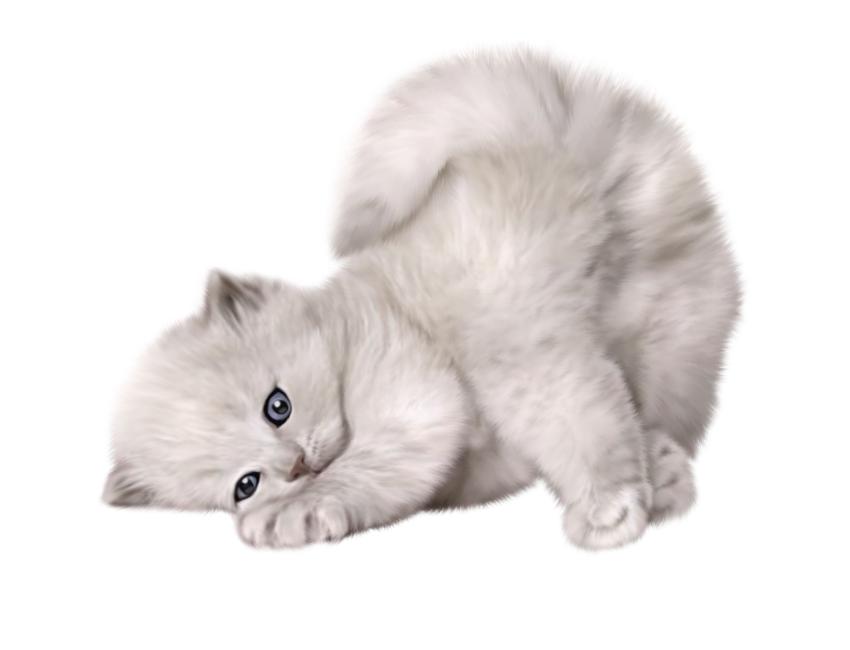
Frequently Asked Questions
What are some creative ways to keep your persian cat entertained?
Keeping your Persian cat entertained doesn’t have to be difficult. Here are some creative ways to keep them engaged:
- Give them lots of interactive toys, like feather wands and puzzle feeders.
- Set up a scratching post or cat tree for them to explore and climb.
- Provide plenty of areas for them to hide and relax.
- Take them on daily walks or let them explore the backyard.
- Play hide-and-seek or fetch with them.
- Set up windows for them to watch birds or squirrels.
- Make homemade puzzle feeders with your cat’s favorite treats.
- Spend time cuddling and bonding with your cat.
How can you ensure a safe and healthy environment for your persian cat?
To ensure a safe and healthy environment for your Persian cat, you should provide them with plenty of space for play and exercise, keep their litter box clean, feed them a balanced and nutritious diet, provide fresh and clean water, groom them regularly, keep up with vaccinations, and visit the vet regularly.
What are some special considerations for persian cats that are kept indoors?
When caring for an indoor Persian cat, there are some special considerations you should keep in mind. Grooming is essential for this breed, so aim to brush your cat’s fur every day. Persian cats also need plenty of toys and scratching posts to stay entertained. Additionally, make sure to provide a litter box with low sides for your cat to climb in and out of easily. Finally, schedule regular veterinary check-ups to ensure your cat is healthy and happy.
What are some tips for introducing a persian cat to a new home?
When introducing a Persian cat to its new home, it’s important to ensure the cat feels safe and secure. Start by providing a quiet space away from other animals, where your cat can get used to the new environment. Introduce your cat to family members, one person at a time, so it can become comfortable with them. Additionally, make sure your cat has plenty of food, water, and toys to play with. Give your cat lots of love and attention, and make sure to provide a few treats here and there to reward it for good behavior. Finally, be patient and understanding, and you’ll soon have a happy and healthy Persian cat.

